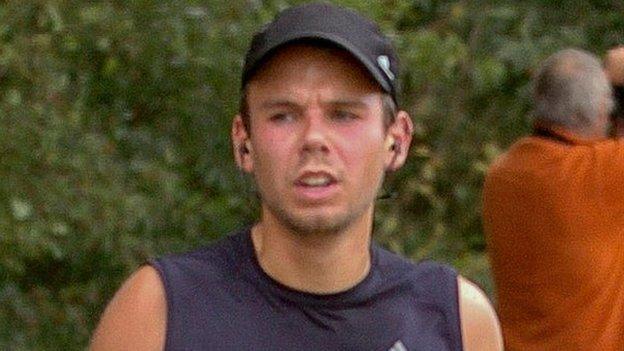After the killing: How parents of attackers cope
- Published
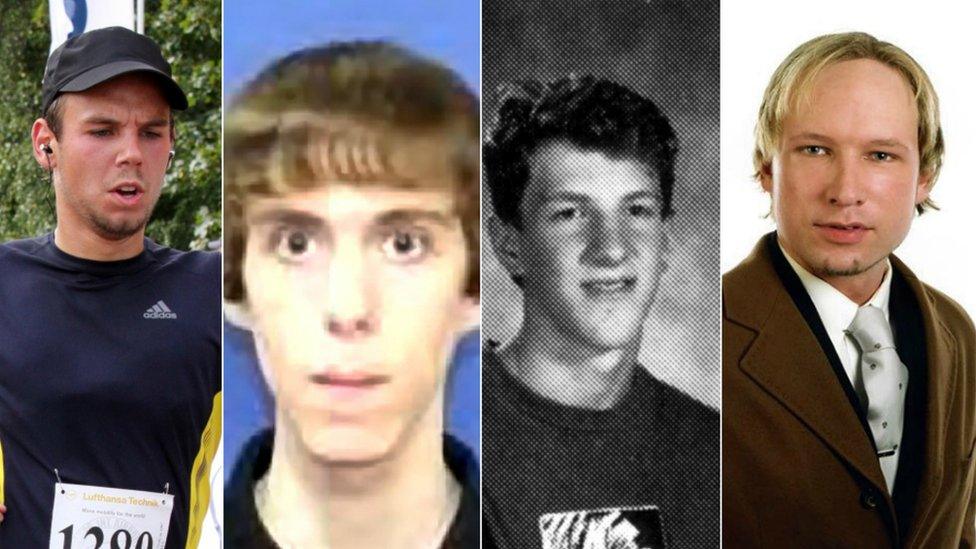
Andreas Lubitz, Adam Lanza, Dylan Klebold and Anders Breivik (from left to right)
On the second anniversary of the Germanwings airline crash, the father of the pilot deemed responsible angered victims' families by denying Andreas Lubitz purposefully killed the 149 passengers on board.
Guenter Lubitz held a news conference insisting his son was innocent, despite German prosecutors concluding in January that Andreas Lubitz intentionally flew the plane into the ground in a murder-suicide bid.
The Lubitz parents had already angered victims' families by taking out an advert paying tribute to their son on the first anniversary of the crash. Alongside their heartfelt message was a smiling photograph of Andreas - and no mention of the 149 victims.
So how do the parents of mass killers reconcile themselves to what their children have done?
Families have criticised Guenter Lubitz for speaking out on the crash's second anniversary
When a mass killing occurs, media speculation often turns to the assailant's upbringing.
"There is a tendency to immediately blame the parents," says Andrew Solomon, professor of clinical psychology at Columbia University, who wrote a book, external about this subject.
"My finding was they are by and large good people who are as shocked by this as anyone else."
"It's a terrible trauma and a terrible loss for the parent, who not only loses their child - even if they've done terrible things - but also their image of their child," he says.
"They're unable to see their child in the light in which they previously had."
'Complicit'
Prof Solomon points to the treatment of the mother of Adam Lanza. He murdered 20 children and six staff members at Sandy Hook elementary school in Connecticut in 2012, but also shot his mother Nancy dead before the attack.
Despite this, Nancy Lanza was not referenced in a memorial address by President Obama and was eradicated from the list of victims in an official report., external
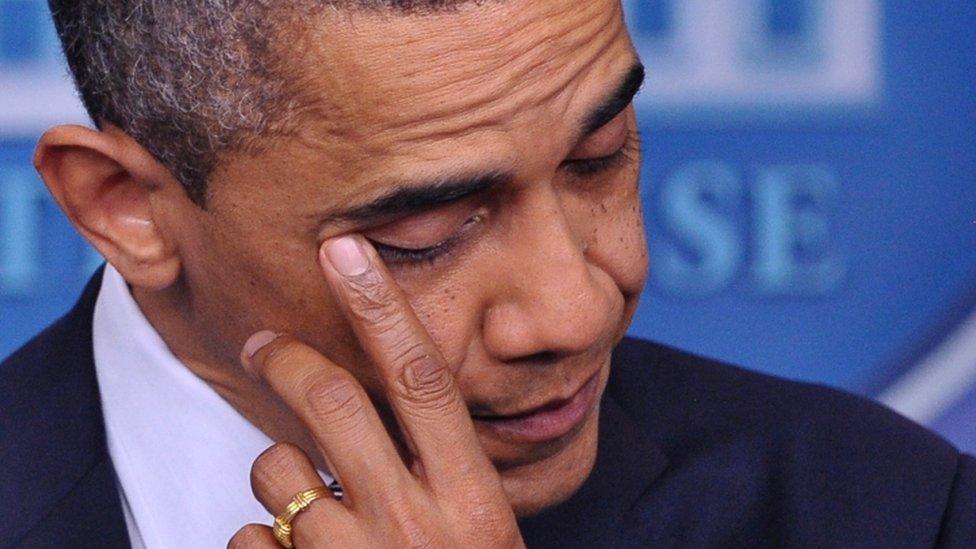
Mr Obama's address said: "We gather here in memory of 20 beautiful children and six remarkable adults"
To some, a narrative prevailed that Ms Lanza, a gun enthusiast, external who allegedly accommodated his untreated behavioural disorders and mental illnesses, was complicit in the incident for not preventing it.
The decision galvanised an ongoing debate about the culpability of parents. One mother published a blog called: I am Adam Lanza's mother, external - about her ominous identification with the incident and personal struggle getting help for her mentally ill son.
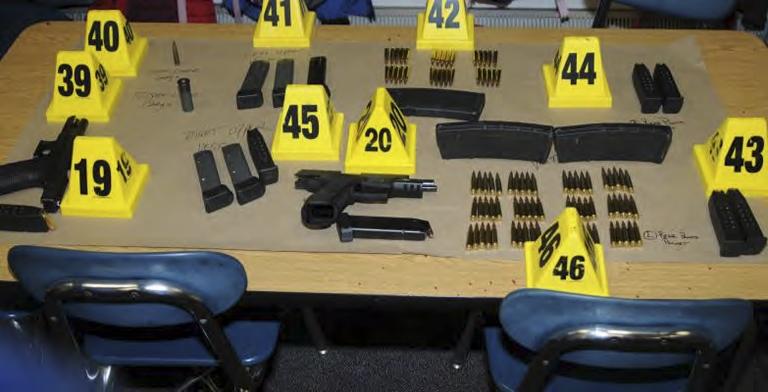
The cache of weapons found in Sandy Hook Elementary School by investigators
Peter Lanza, Adam's father, told Prof Solomon in an interview, external that Adam was not open to therapy.
He believes his diagnosed autism could have disguised schizophrenia, but insisted: "Mental health professionals who saw him did not see anything that would have predicted his future behaviour.
"I get very defensive with my name. I do not like to even say it. I thought about changing it, but I feel like that would be distancing myself."
'Shares the blame'
Jens Breivik, whose estranged son Anders Breivik murdered 77 people in Norway in 2011, admitted to the Guardian, external that: "In the first few weeks, I thought seriously of taking my own life."
Mr Breivik said he got rid of all evidence of his son and resigned himself that he could never return to his home country because of a perception that he shared the blame.

Anders Breivik killed eight people in Oslo, and 69 on Utoeya island
After the Bastille Day attack in Nice that killed 86 people, the perpetrator's father explained to the BBC that the family had sought psychological support for their son.
But for some parents, warning signs were largely absent and the events as unexpected to them as the communities they ravaged.
'Completely different person'
Sue Klebold, the mother of one of the Columbine attackers, has spoken candidly about living with her son's actions.
In 1999 two teenagers went on a shooting spree at Columbine High School in the US state of Colorado, killing 12 students and one teacher. It was a highly co-ordinated attack involving dozens of explosive devices.
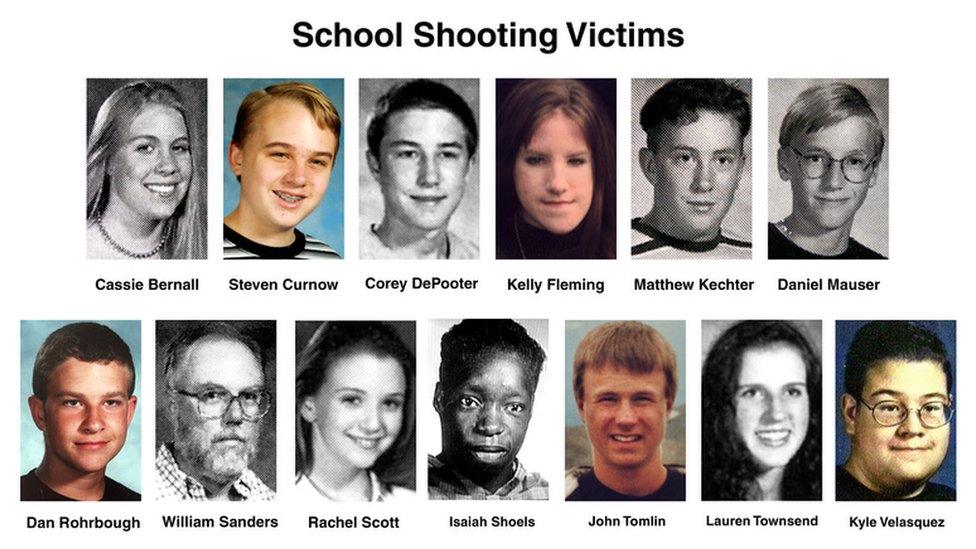
Eric Harris and Dylan Klebold's victims in the attack in Littleton, Colorado
In a Ted Talk, external, she explained: "It's taken me years to accept my son's legacy.
"The cruelty that defined the end of his life showed me he was a completely different person to the one I knew."
Both Eric Harris and Dylan Klebold killed themselves after the attack.
Prof Solomon says Ms Klebold told him that she and her husband continued to believe that Dylan had been "just roped into this against his will" until the tapes he made surfaced.
At the time, commentators blamed the teenagers' actions on a range of influences - from the so-called collapse of family values to rock star Marilyn Manson, external.
"I'm just so sorry for what Dylan did": Sue Klebold
Dylan Klebold's parents, meanwhile, only discovered six months after Columbine that he had been feeling suicidal for two years.
"People asked - how could you not know? What kind of a mother are you?" Sue Klebold said, adding that she had asked herself the same questions.
She also said part of the healing process involved attempting to understand how his suicidal thinking had developed into a desire to commit mass murder.
Psychiatrists say that the rationale for murder-suicides, including those with multiple victims, remains largely "inexplicable".
Ms Klebold said she regreted that people suffering from severe mental health problems "too often only get our attention when they reach a behavioural crisis".
"We cannot know or control everything our loved ones think or feel," she said.
"We'll have to learn to forgive ourselves for not knowing or asking the right questions."
- Published24 March 2017
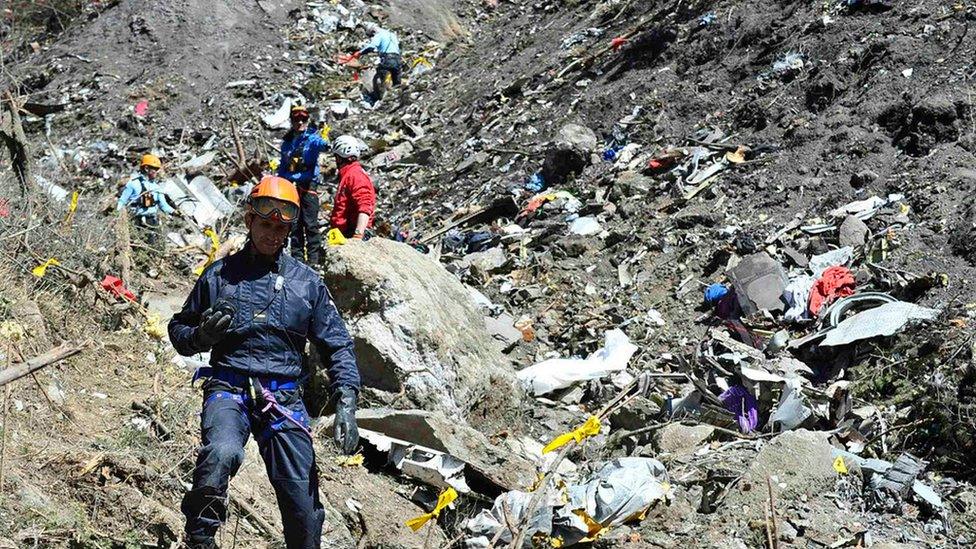
- Published25 July 2016
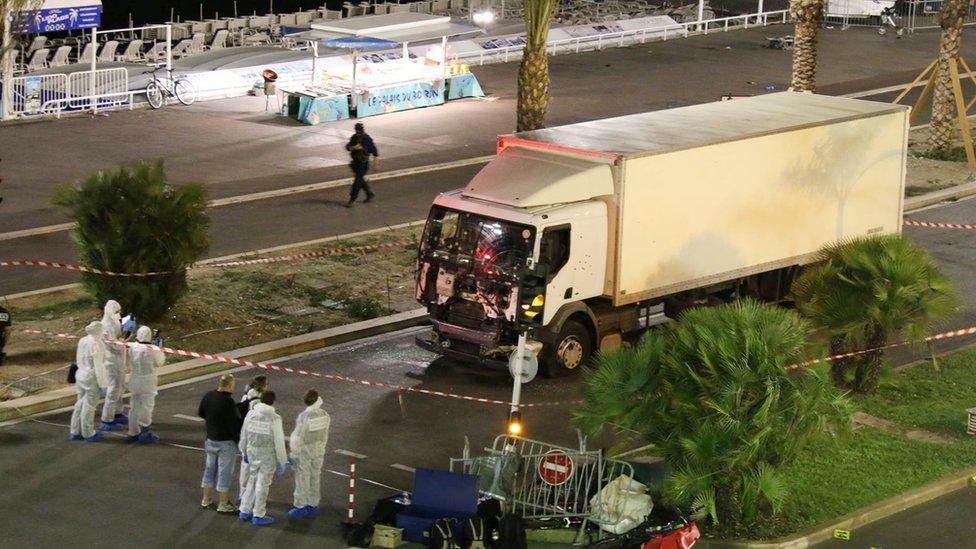
- Published13 February 2016
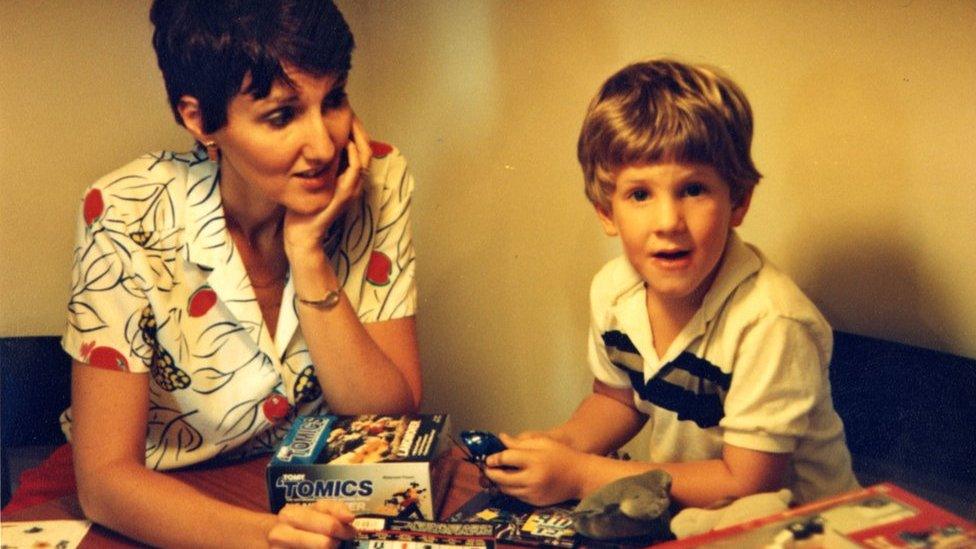
- Published28 March 2015
